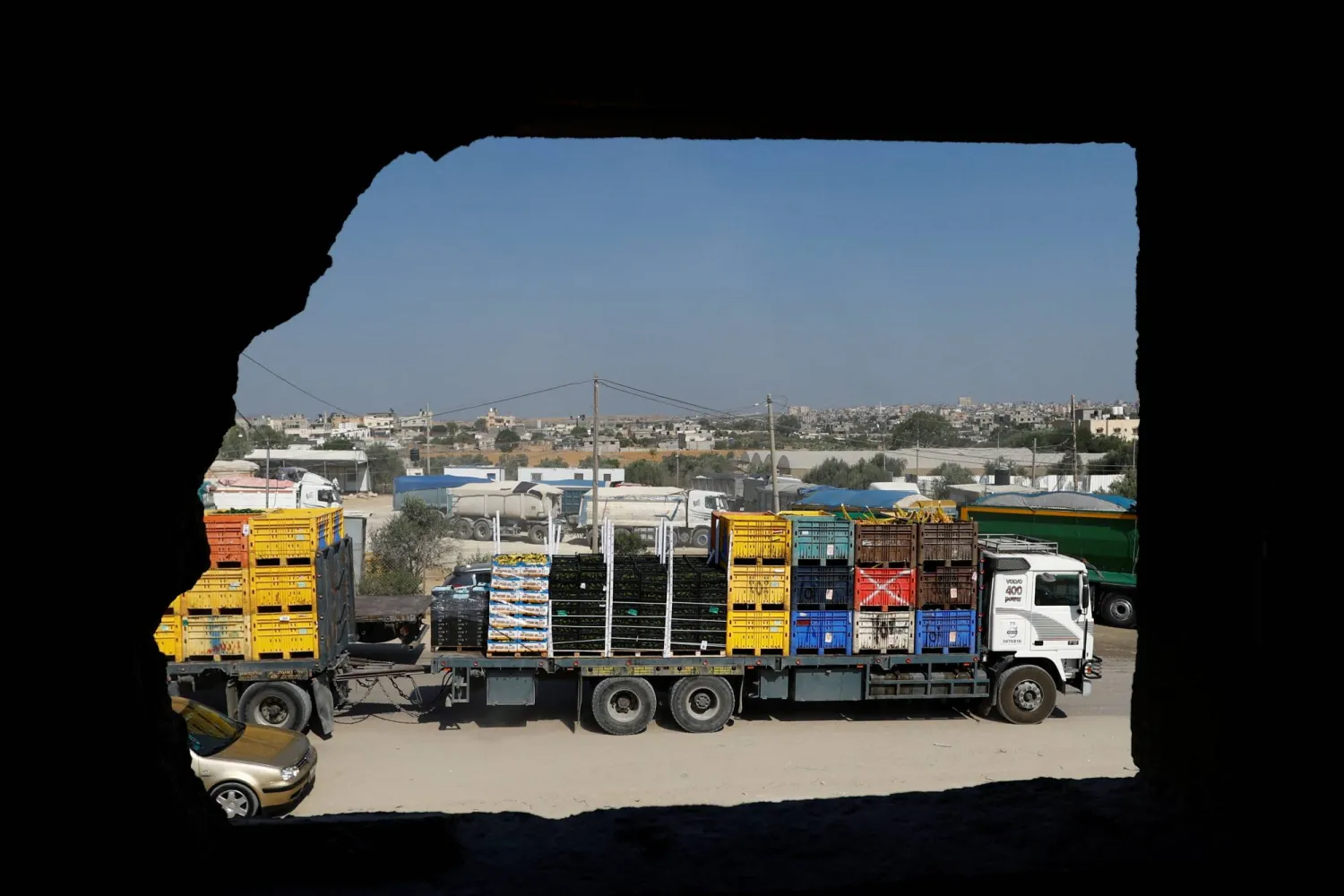Israel announced plans to reopen the Gaza Strip’s main cargo crossing on Sunday after closing it earlier this week, claiming authorities had found explosives headed out of the embattled territory. The closure was a severe economic blow to producers across the coastal strip.
The Kerem Shalom crossing was closed on Monday after authorities said they found the explosives hidden in a clothing shipment bound for the occupied West Bank — one of the main markets for Gaza's tiny export sector, The Associated Press said.
Officials feared the explosives were intended for militants in the West Bank.
After an investigation and “necessary adjustments,” the crossing was deemed safe to reopen, said COGAT, the Israeli defense body responsible for Palestinian civilian affairs.
Palestinian fishermen, businessmen and rights advocates said the closure marked a form of collective punishment against Gaza’s 2 million people, including tens of thousands of laborers who heavily depend on exports to Israel and the West Bank to stay afloat.
Nearly all the goods that enter and exit Gaza pass through Kerem Shalom.
Challenges faced by Gaza’s fisherman during the closure were particularly acute. Their surplus stock perished before it could reach markets in Israel. Gaza’s main fishermen’s union reported $300,000 in losses due to the closure, a significant blow. Fish accounted for 6% of all Gazan exports in July.
The reopening promises a reprieve for fishermen like Khalid al-Laham, a 35-year old father of five who lives in the southern city of Khan Younis. Al-Laham was forced to borrow food from shops to feed his family during the closure.
“The financial and living conditions will certainly improve,” al-Laham said. "I will be able to feed my family and live a decent life.”
While the reopening promises to relieve producers across the territory, Gaza’s economy remains hamstrung by a dual Egyptian-Israeli blockade in place since the militant group Hamas seized control of the territory in 2007.
The blockade, which Israel says is needed to keep Hamas from building up its military arsenal, has pummeled the local economy by choking off access to external markets and limiting movement from the territory.
Israel Says It Will Reopen the Main Cargo Crossing to Gaza on Sunday, a Relief for Gazan Producers

A view of Palestinian goods trucks in front of the commercial crossing of Kerem Shalom after the Israeli ban on Gaza exports deals a blow to the long-suffering economy, in Rafah in the southern Gaza Strip September 5, 2023. REUTERS/Ibraheem Abu Mustafa

Israel Says It Will Reopen the Main Cargo Crossing to Gaza on Sunday, a Relief for Gazan Producers

A view of Palestinian goods trucks in front of the commercial crossing of Kerem Shalom after the Israeli ban on Gaza exports deals a blow to the long-suffering economy, in Rafah in the southern Gaza Strip September 5, 2023. REUTERS/Ibraheem Abu Mustafa
لم تشترك بعد
انشئ حساباً خاصاً بك لتحصل على أخبار مخصصة لك ولتتمتع بخاصية حفظ المقالات وتتلقى نشراتنا البريدية المتنوعة







